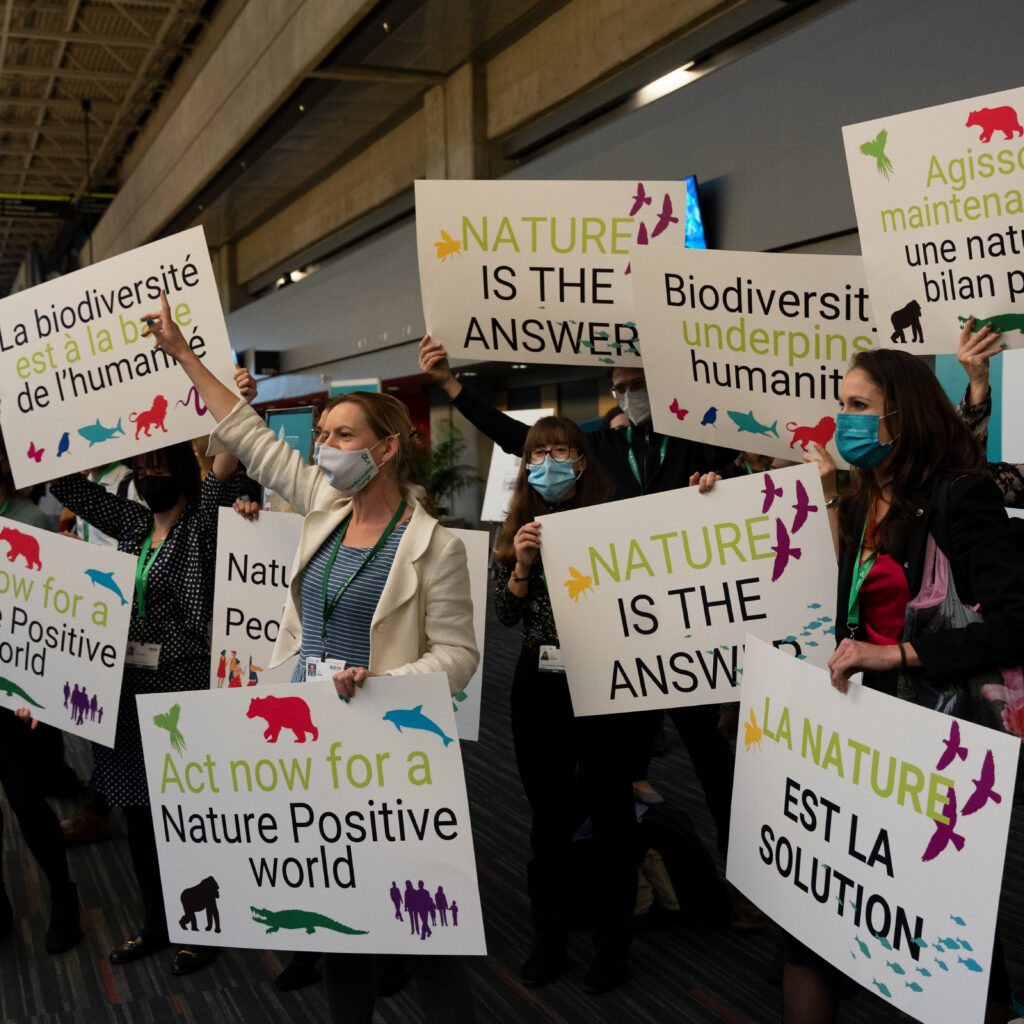
COP15 daily updates.
The following are Wednesday December 07, 2022 highlights from ongoing UN Biodiversity Conference (COP 15), in Montreal Canada. Highlights originally summarized in the, What’s Buzzing in Montreal: Wednesday 7 December 2022, WWF newsletter.
NEGOTIATIONS UPDATE:
- Morning of 7 December began with the opening plenary and the agenda for COP15 was approved, along with a long list of formalities that were slowly ticked off. During COP, delegates will negotiate the new Global Biodiversity Framework, as well as other matters related to the UN CBD (which usually come from the discussions of the subsidiary bodies – SBSTTA and SBI – in-between the COPs).
- From Wednesday 07, 2002 until the last day, the COP will split into two parallel sessions, known as Working Groups. Everything they decide has to be approved at the final plenary.
- These Working Groups have a large body of work to get through; the normal Decisions that have to be discussed by a CoP on the basis of documents from SBSTTA and SBI, on matters such as resource mobilization, gender, marine biodiversity, invasive alien species, and matters relating to the Cartagena and Nagoya Protocols.
- The Chairs of these two Working Groups have already indicated that, in the interests of time, they will limit or disallow interventions at the opening of some agenda items and, instead, send them straight to Contact Groups or (more restricted) Friends of the Chair. In other cases, they will already table Conference room Papers on the basis of the outcomes of SBSTTA and SBI discussions, essentially skipping the first round of interventions on these as well.
- During COP, each Working Group will need to set up Contact Groups to facilitate the negotiations.
- In the evening, the first three parallel Contact Groups started, one on mechanisms for planning, monitoring, reporting and review; another on the Cartagena Protocol, Risk assessment and risk management (Articles 15 and 16); and the third on Resource Mobilization. The agenda items on planning, etc. and on resource mobilization are very important for implementation of the post-2020 GBF, once adopted.
- In Resource Mobilization, parties are looking like they will take a pragmatic step to increase the pace of the negotiations that may allow them to make urgently needed progress and increase their chances of agreeing a clear path at COP15 toward a final packaged deal on financing.
- At the same time, parties are finally starting to reach out to each other more proactively, for informal dialogue to try and find areas of convergence and compromise.
- Today, 8 December, parties will start to negotiate the monitoring framework for the post-2020 GBF in earnest. Negotiations on DSI will continue. The evening will be important for the oceans with negotiations on conservation and sustainable use of marine and coastal biodiversity and on ecologically or biologically significant marine areas.
REACTIONS FROM WWF:
Commenting on what needs to be agreed on finance at COP15, Florian Titze, Policy Advisor, International Biodiversity Policy, WWF Germany said: “Governments need to realize that in a world without biodiversity, there will be no wellbeing, health, prosperity or security for people – nor will our economic and financial systems be able to function. What we need to see agreed at COP15 is a comprehensive resource mobilization strategy and that means finance from all sources – including public, private, domestic and international and minimizing investments that harm nature. The bottom line is governments need to make sure that the policies they implement to protect nature with one hand are not being undone with the other – because more money alone will not be enough to halt and reverse nature loss to be nature positive by 2030. This involves ensuring finance laws do not contribute to the destruction of nature via harmful subsidies and investment. A strong increase of overseas development aid on biodiversity will be critical to agree on a deal at COP15.The 10-point plan launched in September is an excellent example of what a comprehensive approach could look like, and we need more countries supporting this. Now is the time for shifting gears because we need to make progress on this fast, if we’re to have any shot of securing a nature-positive world.”
The full calendar of events hosted in the Nature Positive pavilion is available on the Nature Positive website. All events in the large room will be livestreamed here

